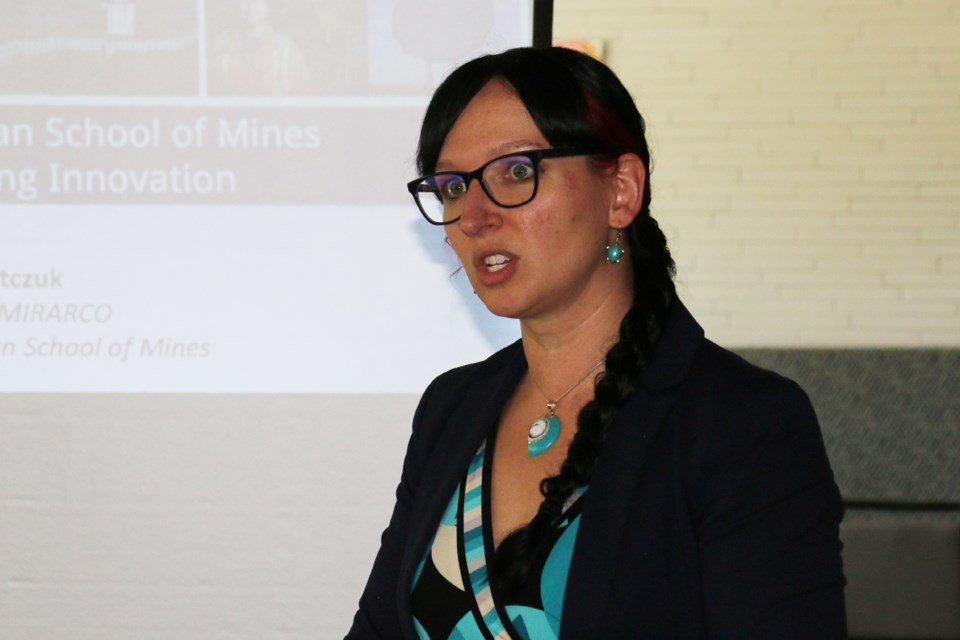The Goodman School of Mines at Sudbury’s Laurentian University is working to expand the scope of mining education in collaboration with other mining schools across Canada.
Details were explained last week by Dr. Nadia Mykytczuk, the executive director at the Goodman School. Mykytczuk wears another hat as president and CEO of MIRARCO (Mining Innovation, Rehabilitation, and Applied Research Corporation) in Sudbury.
She was speaking to a group of out-of-town media and VIPs who were in Sudbury to take part in the BEV In Depth: Mines to Mobility battery electric vehicle conference.
Mykytczuk told the audience that despite the financial insolvency experienced at Laurentian University from 2021-2022, LU is "rising from the ashes from a pretty significant restructuring," and part of that includes stepping back out onto the international stage to show Laurentian's mining education credentials.
"Showing that we are in fact committed to being Canada's mining university," said Mykytczuk.
"The Goodman School of Mines has been listening to what's happening in the industry and the huge shortfall in the talent pipeline that we're seeing," she said.
Another concern, said Mykytczuk, is that as the mining industry is changing, and there are gaps in information that mining educators need to provide.
"Training in fundamental disciplines is missing the mark for people that are needed, the skill sets that are needed in the industry of today and tomorrow," she said. She said this requires a pan-Canadian program to provide essential information.
"So even though Sudbury and Laurentian are small, if you think in terms of being the size of the university, we have reached out and we are partnering with U of T (Toronto) and UBC (British Columbia) and McGill (Montreal) to build a mining masterclass, an online program, multi-credentialed, micro-credential program, that will leverage the best of the best in all of the disciplines that we have to offer in mining and mining related programming across Canada," she said.
"It's a beautiful idea. Maybe you can test me on this a year from now to see if you can execute this across Canada with multiple institutions. But the idea really is to try and hone in on the gaps that exist today. And with that traditional programming, academic programming, we can't get there fast enough," she added.
Mykytczuk is also known for her research and promotion of bioremediation, the new tech idea of using bacteria for capturing minerals from mine waste and tailings.
She said Sudbury and other mining communities have to recognize that conventional mining is not good enough to become fully sustainable and environmentally valid.
"This is the legacy of mining. For every tonne of material, right, we're extracting less than one per cent as metal. The rest is going to waste. And those wastes do create a very long environmental legacy. And we simply can't do that anymore to create green vehicles. You know, non-sustainable extraction processes that made that possible."
Mykytczuk's research examines how to use bacteria to separate minerals from existing tailings material in a safe and sustainable way. She said the need is urgent because the Canadian mining industry produces more than 650 million tonnes of tailings each year.
She said the drive for critical minerals will only increase that number and so the push is on to find solutions.
Len Gillis covers the mining industry and health care for Sudbury.com.




